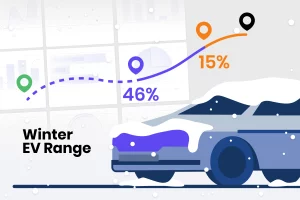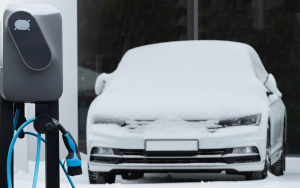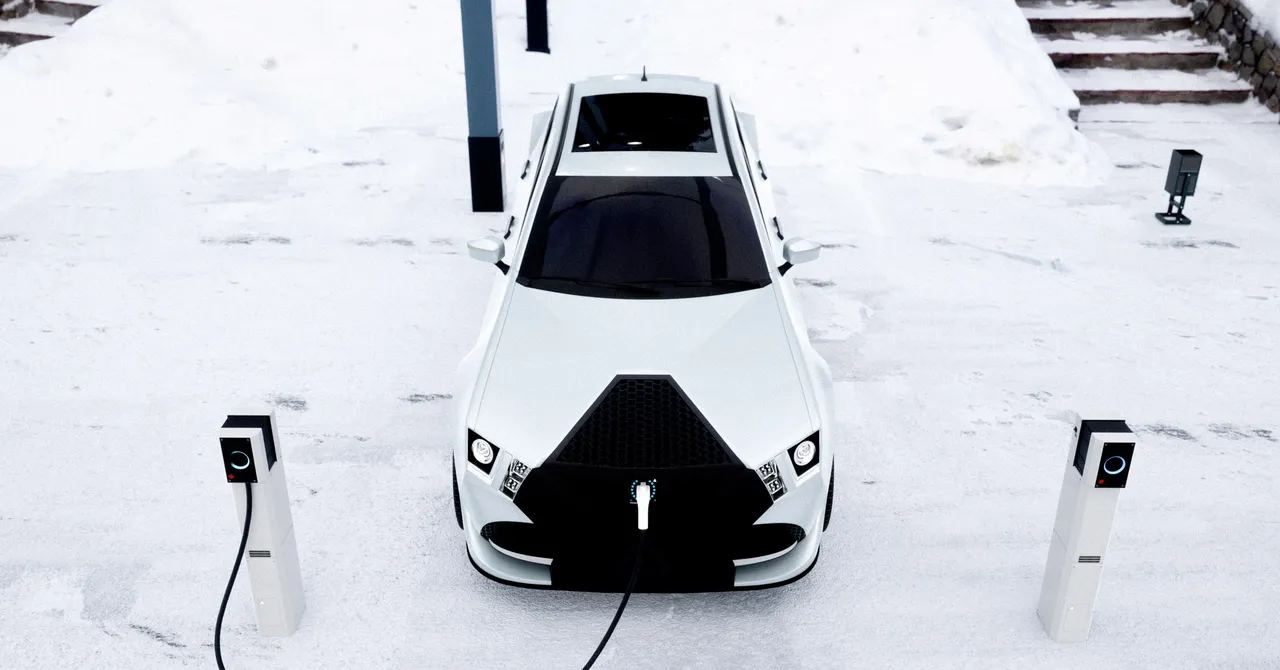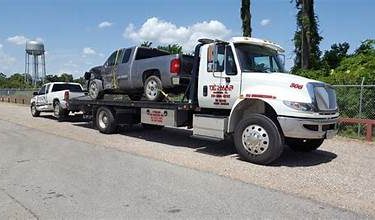Introduction:
Freezing EV, the Harsh Realities of the EV IndustryThe electric vehicle (EV) industry has been experiencing a rapid rise in popularity. As more and more consumers switch to eco-friendly modes of transportation. However, despite the positive trend towards EVs, there are still several harsh realities that the industry must face. One such reality is the issue of cold weather and how it can severely impact the performance of EVs.
Cold Weather and Freezing EV Range

One of the biggest issues with EVs in cold weather is their range. When the temperature drops, the battery’s performance is significantly reduced, leading to a decrease in range. This reduction can be as much as 40% in extreme conditions, making it difficult for drivers to travel long distances.
To combat this issue, EV manufacturers have developed technologies that can help to mitigate the effects of cold weather on range. For example, some models come equipped with battery heaters that warm up the battery before use. While others have thermal management systems that regulate the temperature of the battery to optimize its performance.
Charging in Cold Weather
Another challenge that EV drivers face in cold weather is charging. Cold temperatures can slow down the charging process, making it take longer to charge the battery. This is because lithium-ion batteries, which are commonly used in EVs, are temperature-sensitive and can only charge efficiently within a specific temperature range.

To address this issue, some charging stations are equipped with heaters that warm up the battery while it’s charging. Additionally, some EVs have built-in thermal management systems. That can regulate the temperature of the battery during the charging process.
Winter Tires and Freezing EV:
Winter tires are another important consideration for EV drivers in cold weather. While all-season tires may be suitable for mild winter conditions. Drivers who live in areas with heavy snowfall will need to invest in winter tires. This is because winter tires are designed to provide better traction on snow and ice, which is essential for safe driving.

However, winter tires can also impact the range of an EV. This is because they have a higher rolling resistance than all-season tires. Which can reduce the vehicle’s efficiency and range. To combat this issue, some EV manufacturers have developed tires that are specifically designed for EVs in cold weather conditions.=
The Impact of Cold Weather on EV Sales
The impact of cold weather on EV sales is a topic that has been widely debated. While some argue that the harsh realities of cold weather make EVs less practical. And, as a result, less appealing to consumers, others believe that cold weather is simply a temporary setback that the industry will overcome.
Despite the debate, there is evidence that suggests that cold weather does indeed have an impact on EV sales. For example, sales of EVs in Canada tend to be lower in the winter months compared to the summer months. Which is likely due to the harsh winter conditions
Conclusion
The harsh realities of cold weather on the EV industry are undeniable. However, as the industry continues to grow and evolve. We’ll likely see more innovative solutions that can mitigate the impact of cold weather on EVs. Whether it’s through the development of new battery technologies or the creation of specialized tires. The industry is well-positioned to overcome these challenges and continue to pave the way toward a more sustainable future.




